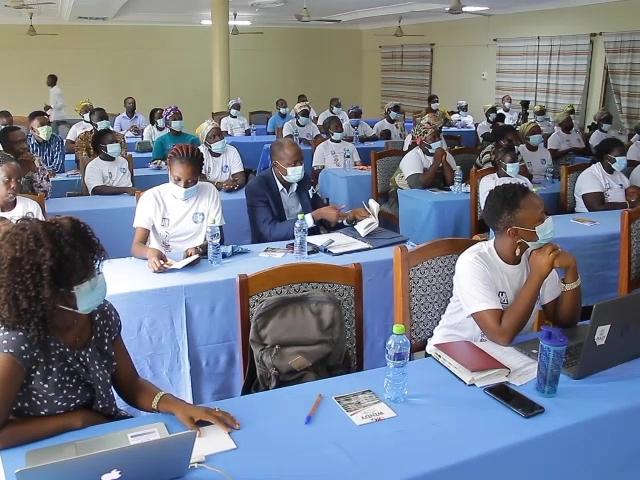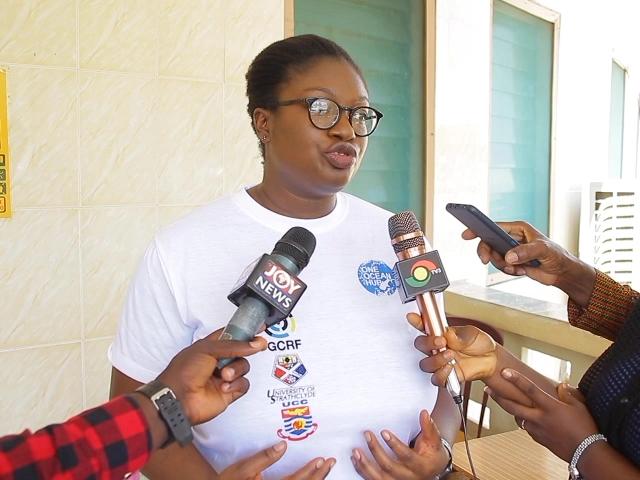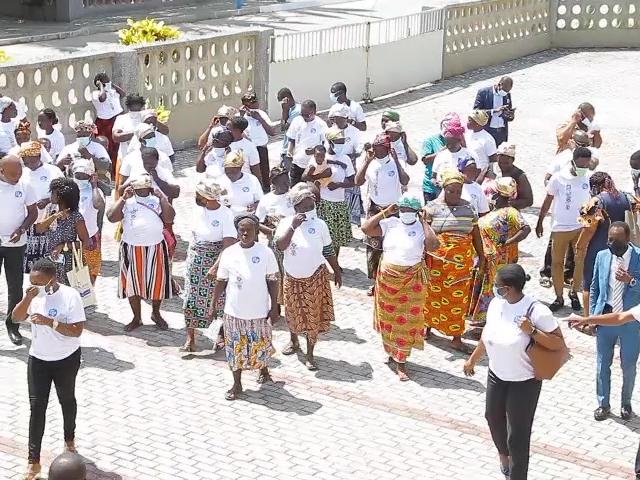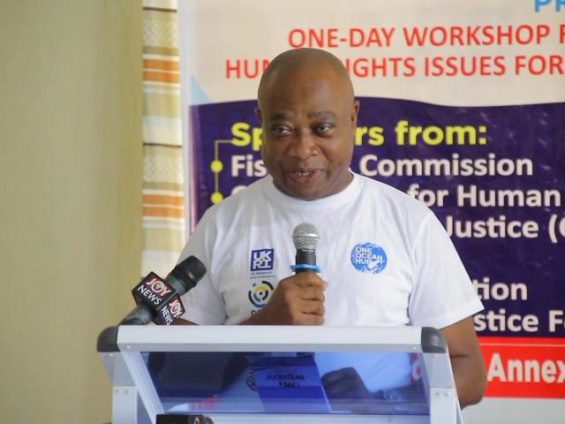Experts in climate change, fisheries and human rights under the 'One Ocean Hub Ghana' are calling on policy makers in the country to ensure that the voices of those whose lives depend directly on the ocean are incorporated in policies that govern the ocean.
Country Director of ‘One Ocean Hub Ghana Project, Prof. Benjamin Kofi Nyarko, believes a departure from the top-bottom approach type of ocean governance would help a great deal with the dwindling marine life and to some extent reduce the impact of tidal waves that occasionally rock some coastal communities.
The experts have been addressing a day’s awareness creation forum for women in selected small-scale fisheries in the Central Region.

Prof. Kofi Nyarko stated: “the One Ocean Hub brings together researchers to help us have an interdisciplinary research in order to understand the ocean in a holistic manner and also to have evidence-based research so that it could be inputted for policy purposes.”
The day’s awareness forum was to build the capacity of fish processors and fishmongers in two communities in Gomoa West and Efutu in the Central Region to network and join forces to voice their problems to make it stronger for the government and other institutions who make policies to address them.

“The policy-makers expect the fisherfolk to swallow whatever policies they have put forward without considering their thoughts, believes and challenges. They don’t incorporate the various aspects which the fisherfolk are used to. There are various intangibles which could into the fashioning of policy and so the policies are always vague because they weren’t consulted,” he said.
Law lecturer at the University of Cape Coast, Dr. Bolanle Erinosho, explained why the intervention of the One Ocean Hub was particularly important. She says it was important to involve the community folk in the fishing areas in order to deal with the climatic change issues and also to deal with its associated human rights issues.

Zonal Director of the Fisheries Commission, Kwame Damoah explained that the low involvement of local communities in fisheries management planning and decision making demanded co-management of the ocean.
He stated that the Fisheries Commission and Ministry of Fisheries were working to put an end to illegal fishing in the country, but it was unfortunate that the same people who were calling on the government to stop illegal fishing were the ones engaged in the practice and urged them to put an end to it.
The One Ocean Hub, is a Global Organization, led by the University of Strathclyde Glasgow in the UK with 18 partner organizations, aimed at seeking the transformation of the urgent challenges facing the Ocean, influencing decisions and practices that shape the future of the ocean promote sustainability and justice.
Latest Stories
-
Congo, M23 rebels plan return to Qatar talks amid Trump pressure
3 hours -
US, Colombia recall their ambassadors in diplomatic tussle
3 hours -
‘It’s a joke’: Peruvians outraged after president doubles her salary
3 hours -
Putin tells Trump he won’t back down from goals in Ukraine, Kremlin says
3 hours -
Boxer Julio Cesar Chavez Jr arrested by US immigration
4 hours -
Over 100 former senior officials warn against planned staff cuts at US State Department
4 hours -
Dagbang overlord bans celebration of 2025 fire festival in Tamale
4 hours -
BBC senior staff told to ‘step back’ from duties following row
4 hours -
North Tongu DCE urges trust in gov’t as flood victims awaits compensation
4 hours -
2 arrested for murder of Lebanese national in East Legon
4 hours -
NSMQ 2025: GSTS clinch Western Regional Championship to book spot at national
4 hours -
New Supreme Court judges pledge fairness, acknowledge family support
4 hours -
Kilmar Ábrego García alleges torture and abuse in El Salvador prison
5 hours -
Gov’t sets up committee to investigate sale of state lands, including those owned by schools
5 hours -
Angélique Kidjo first black African to get Hollywood Walk of Fame star
5 hours

